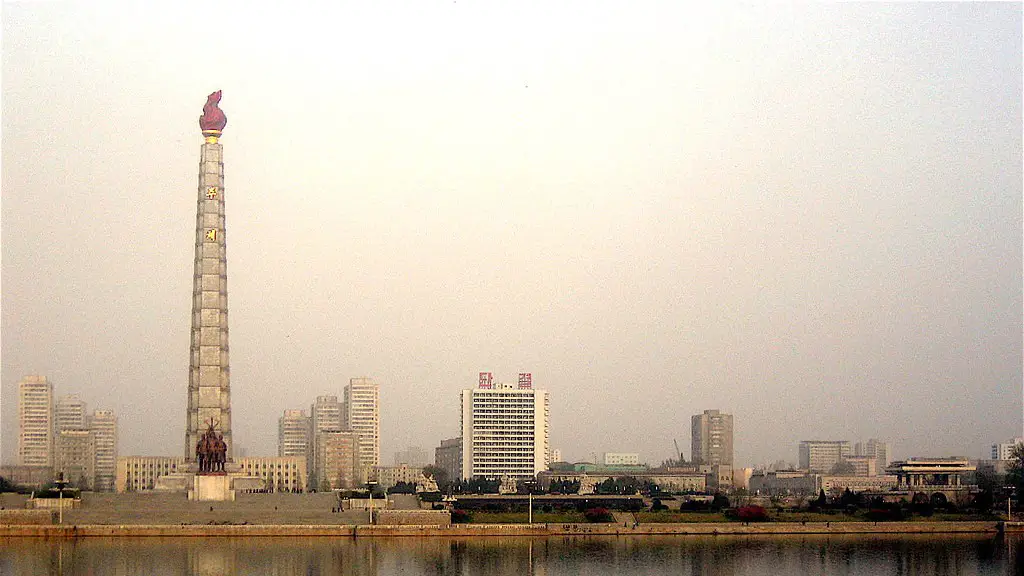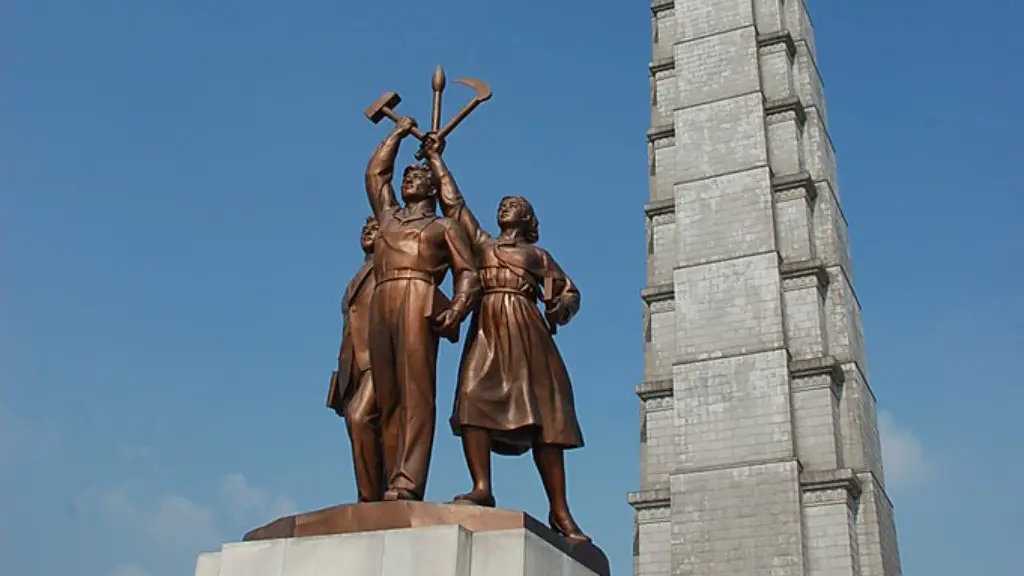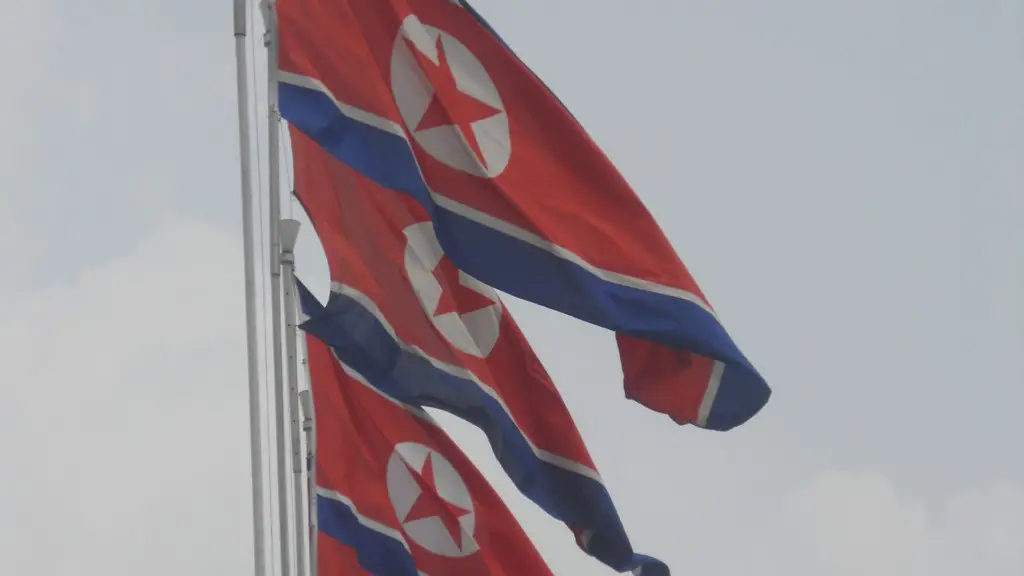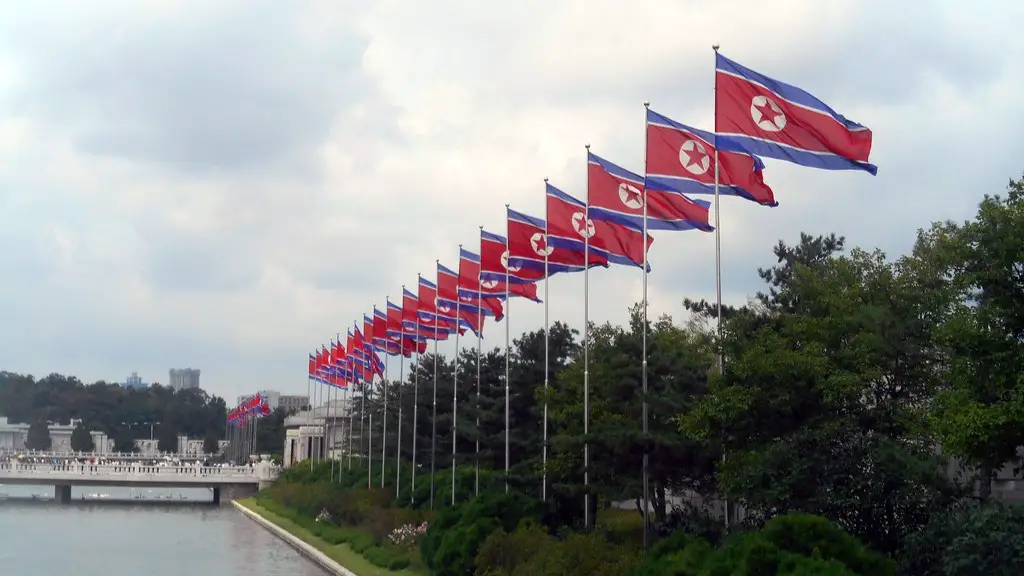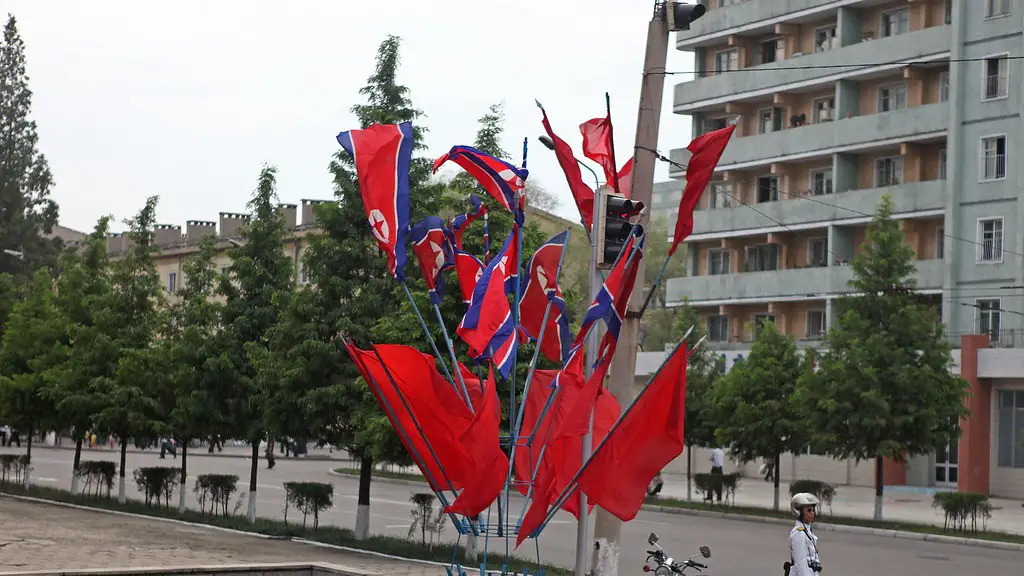When night falls on North Korea, most cities and villages across the country look like ghost towns – so dark that the stars seem to disappear from the night sky. But why is North Korea so dark at night? As it turns out, the answer to this question is far more complex than one might think.
At first, the darkness could be attributed to North Korea’s inadequate levels of electricity production and distribution. According to a 2014 survey by the Korea Energy Economics Institute, North Korea produces and consumes 25 percent less electricity than its southern neighbor, South Korea. This would explain why one rarely sees the streets at night illuminated by electric light, as the electricity needed to especially generate power to residential areas, is simply not there.
But North Korea’s blackout is not only due to insufficient electricity – it also has much to do with the country’s political culture. In North Korean society, many citizens adhere to the Kim Il Sung-era ideology of “self-reliance.” This philosophy encourages people to be thrifty with the use of energy and other resources, as well as to conserve power wherever possible. This is why North Koreans tend to use very little electricity at night.
The dark streets of North Korea can also be attributed to the government’s policy of conserving energy for the military. As such, companies and factories that are critical to the country’s armed forces are often given priority when it comes to electricity and other resources. This explains why some areas of the country are brightly lit while others have no lighting whatsoever.
Furthermore, North Korea’s night skies may also be black because of the country’s restrictions on private ownership of vehicles. The scarcity of cars means that there is less vehicular traffic on the roads at night, making the country much quieter and more peaceful. This could mean that the streets are even darker than they would be if the country had more cars.
Lastly, the amount of light pollution in North Korea is also impacted by the country’s lack of electrical infrastructure. This means that many areas lack the necessary infrastructure to power large-scale lighting or street lamps, which further contributes to the country’s nighttime darkness.
Political Isolation and Its Effects on North Korea
Apart from the lack of electricity, North Korea’s darkness is also encouraged by the country’s political isolation from the rest of the world. North Korea is a highly secretive state, and it has cut itself off from most of the outside world, including the internet. This means that there is very little access to outside entertainment and news, so citizens have to find ways to entertain themselves in their own homes – often with limited electricity. This also explains why North Korea rarely has bright lights in its cities – most people in the country go to bed early and avoid staying out late.
Additionally, the government’s strict control over the media and the public’s access to information also contributes to the darkness. North Korea’s state-run media is highly restricted in the type of information that it is allowed to publish, and citizens do not have access to international news sources. This means that North Koreans are far less likely to be exposed to bright lights, advertising, and other sources of commercial light pollution.
Furthermore, North Korea’s citizens are also able to save a lot of money by consuming less electricity. Since electricity is so expensive in North Korea, limiting the use of electricity can actually be beneficial. By cutting down on their electricity consumption, North Korean citizens are able to save money, which can be used for other necessary purchases.
Finally, the lack of access to international technology and knowledge also contributes to North Korea’s darkness. North Korea is not as advanced in its use of technology as many of its neighbors, and its citizens are not able to access the same types of energy-saving products (such as LED lighting) that other countries do. This further limits the availability of light sources in North Korea.
North Korea’s Illuminated Past
Contrary to this, North Korea was once home to some of the most illuminated cities in the world. Before its division into North and South Korea, it was admired for its bright and well-lit streets. Pyongyang, the capital of North Korea, for example, was renowned for its nightlife and its flashy neon lights. But after the Korean War in 1950, North Korea began to drift into darkness as its electricity consumption plummeted.
It is also interesting to note that North Korea’s darkness is not completely uniform. Despite its image as a desolate wasteland, some cities in the country are actually quite brightly lit, even at night. Wonsan and Pyongyang, for example, are both known for their bright nightlife scenes – indicating that there is still some electricity in those cities, at least for the citizens who can afford it.
Moreover, North Korea has been making attempts to revitalize its electric sector in recent years. The country has made plans to increase the supply of electricity and make it cheaper, in hopes of restoring some of its former illumination.
Although North Korea has made some progress in its electric sector, it still has a long way to go. Electricity remains a scarce resource in North Korea, and progress is slow. Until the country is able to make strides towards electrifying its cities and streets, the darkness of night will continue to loom over this secretive nation.
North Korea’s Relationship With Darker Countries
It is also important to note that North Korea maintains close ties with countries that have their own shades of darkness. North Korea has maintained strong diplomatic relations with Iran and Syria, both of which are known for their authoritarian regimes and lack of freedom. As such, it is likely that North Korea has taken note of the strategies employed by these countries to stay in power.
North Korea has also been linked to countries in Africa, such as Sudan and Somalia, which are some of the poorest countries in the world. North Korea’s government is believed to have provided financial, military, and technical assistance to these countries in the past, which could explain why the country continues to be so dark and isolated, even today.
Finally, it is worth noting that North Korea is also subject to certain international sanctions, which restrict the flow of goods and services into the country. These sanctions were designed in part to limit North Korea’s access to electricity, to punish the country for its nuclear weapons program.
This means that even if the North Korean government wanted to have brighter streets and more electricity-dependent infrastructure, it could not because of the international sanctions imposed on it. The sanctions have further impeded the country’s development, and the darkness of night continues to linger in North Korea’s cities and towns.
Illuminating a Brighter Future
Although North Korea remains darkness, there is some hope that the country can emerge from its isolation. Despite the difficulties faced by its citizens, North Korean people are resourceful and resilient, and some have found ways to light up their homes despite the lack of resources.
In the past few years, North Korean citizens have taken the initiative of using solar power for electricity generation. Solar panels have become increasingly popular in North Korea, as citizens find creative ways to generate their own electricity and stay away from the country’s unreliable grids.
Additionally, North Korea’s neighbors in South Korea have been trying to build ties with North Korea, in part to help provide North Koreans with access to resources and technology. South Korea has even developed a special program to provide assistance to North Korea’s vulnerable populations and help address issues like energy poverty.
These initiatives offer some optimism that North Korea can, one day, overcome its darkness and illuminate its cities again. With increased access to resources and technology, North Koreans could soon be able to enjoy brighter nights and more illuminated streets.
Generating Awareness From The Outside World
While the darkness in North Korea is partially caused by a lack of electricity and resources, it is also fueled by the lack of awareness from the outside world. Too few people are aware of the dark conditions in North Korea, or the suffering of its people.
Heads of states and citizens from around the world have an obligation to help North Koreans gain access to electricity and resources and knowledge. This could be done through diplomatic ties, or through aid to North Korea.
Furthermore, citizens from other countries can also contribute to awareness about North Korean’s darkness by sharing news stories, researching the country, and engaging in conversations about North Korea on social media.
By taking action, individuals can help to lift the veil of darkness that has been covering North Korea for so long.
Engaging With North Koreans
Finally, citizens from other countries can support North Korea by engaging directly with North Korean citizens. This could be done through travel and by visiting North Korean cities and speaking to North Koreans.
Engaging with North Korean people directly allows visitors to gain an understanding of the country’s issues and the struggles of its people. It also helps create a cultural exchange, and encourages people to learn more about North Korea’s unique culture and history.
By engaging with North Koreans, visitors can gain a better understanding of the complexities of the country’s darkness, and deepen their understanding of the situation in North Korea.
Untangling the Complexity of Darkness
Why is North Korea so dark at night? The answer to this question is far more complex than one might think. From insufficient levels of electricity production and distribution to political culture, government policy and international sanctions, there are a variety of factors that contribute to the darkness of North Korea’s cities and towns.
Fortunately, there is still hope that North Korea can overcome its darkness. Through initiatives such as solar power, international relations, and awareness from outside countries – North Koreans can one day enjoy a brighter future.
